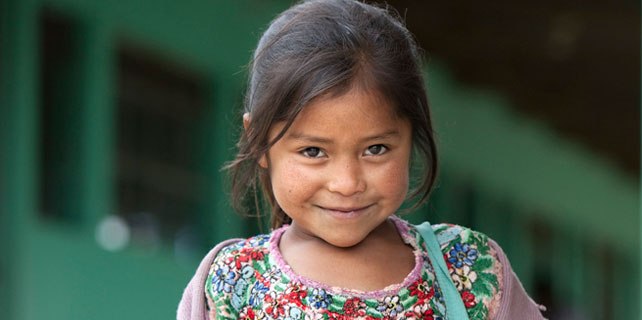women in development: empowering women to empower themselves

Women Deliver, one of the largest and most important international conferences on women’s health around the world, happens on May 27 to 30 in Malaysia. Bringing together the world’s most influential policy makers, academics, youth, media, health workers and advocates, the conference focuses on empowering girls and women through greater access to maternal, sexual and reproductive health.
Attending the conference will be 28 year old Lip Magazine reader Melissa Cockroft. Melissa secured a full scholarship to attend as part of the 100 Young Leaders program, beating stiff competition from 6,000 other applications. Not only that, she is the only Australian recipient of the scholarship, putting her in a unique place to gain greater knowledge of how our governments and civil society can further empower women and girls globally.
A gathering such as Women Deliver demonstrates not only the belief that women and girls in developing countries can change the world, but that the women who work in development are the ones helping them to do so. And despite common misconceptions, these women are not dreadlocked Uni students handing out flyers at rallies. They are not hemp and Birkenstock clad hippies scorning us about our First World Problems. They are not annoying backpackers hassling us to stop ‘just for a sec’ as we battle the lunchtime rat race to get some sushi before it sells out.
Reality check: the women who work in development are the role models for the next generation of empowered girls and women. They are the educators who give women the power to make choices over their bodies. They are the midwives who save the lives of mothers and babies. They are the administrators who ensure that supplies, equipment, outreach programs, funding and health services all make it from paper to reality.
Melissa is not a tree hugging hippie in her country of work, Cambodia. She doesn’t empower women with hugs and campfire sing-a-longs. She doesn’t heal the permanent injuries obtained through childbirth with healing crystals. She studied hard and her academic record is so impressive it certainly puts me to shame. (In brief, she holds: a Bachelor’s degree from Melbourne University – under scholarship – majoring in History and Development; a Diploma of Modern Languages; an Honours degree at RMIT culminating in a thesis on women and peace-building in Timor Leste; and a Masters degree from ANU.) As a result, her work with Marie Stopes International Cambodia helped avert 22,000 unsafe abortions in 2011.
When asked about the hippie stereotype, Melissa says, ‘I really fit the nerd stereotype. I was really studious. I love reading about new innovations and the latest goings on, what are the arguments around abortion – I really love reading about all that kind of stuff.’ No kidding.
At 23 years young she took her educated mind to Cambodia where she embarked on what would be several years of volunteering with various NGOs, giving her experience in working for various causes including anti-trafficking, women’s adult literacy and HIV prevention in sex workers, eventually progressing into her current role working in sexual and reproductive health – a role she is passionate about.
‘I think it’s really important to raise awareness and increase people’s access to information about family planning,’ she says. Indeed, family planning is a crucial key to empowering women in developing countries and is outlined as one of Women Deliver’s three core strategies to saving women’s lives. It is also a mission embraced by Marie Stopes International – a belief that the simple knowledge and access to family planning and reproductive health can help women get an education, look after their health, gain employment and reinvest in their families and communities. That is how women can change the world.
Melissa is a true warrior for women’s rights, admitting that, ‘in high school, gender issues and feminism were on my radar and then at University I really focused on women’s issues in both my majors. I always tried to focus on how women were affected in history, how they were represented or not represented and what the issues are around women’s development.’
So, would Melissa describe herself as a feminist?
‘Yes, I would. Absolutely, yes.’
That answer is probably the only unsurprising thing about her.
NB. Melissa also added one thing she thought Lip mag readers might be interested in, and I quote:
‘At the conference there is a Young Leaders reception, and – I don’t know if they are speaking or just hosting – but Chelsea Clinton, Barbara Bush and Mandy Moore will be there. Do you remember Mandy Moore? So when I read all those, I was kind of more excited that Mandy Moore is coming. Mandy’s the global face of PSI [Population Services International] so I was like, “Oh cool!”’
I suppose even self-professed geeks have the odd star struck moment!
Matylda Buczko is the Communications Coordinator at Marie Stopes International, a global not-for-profit organisation specialising in sexual and reproductive health.

